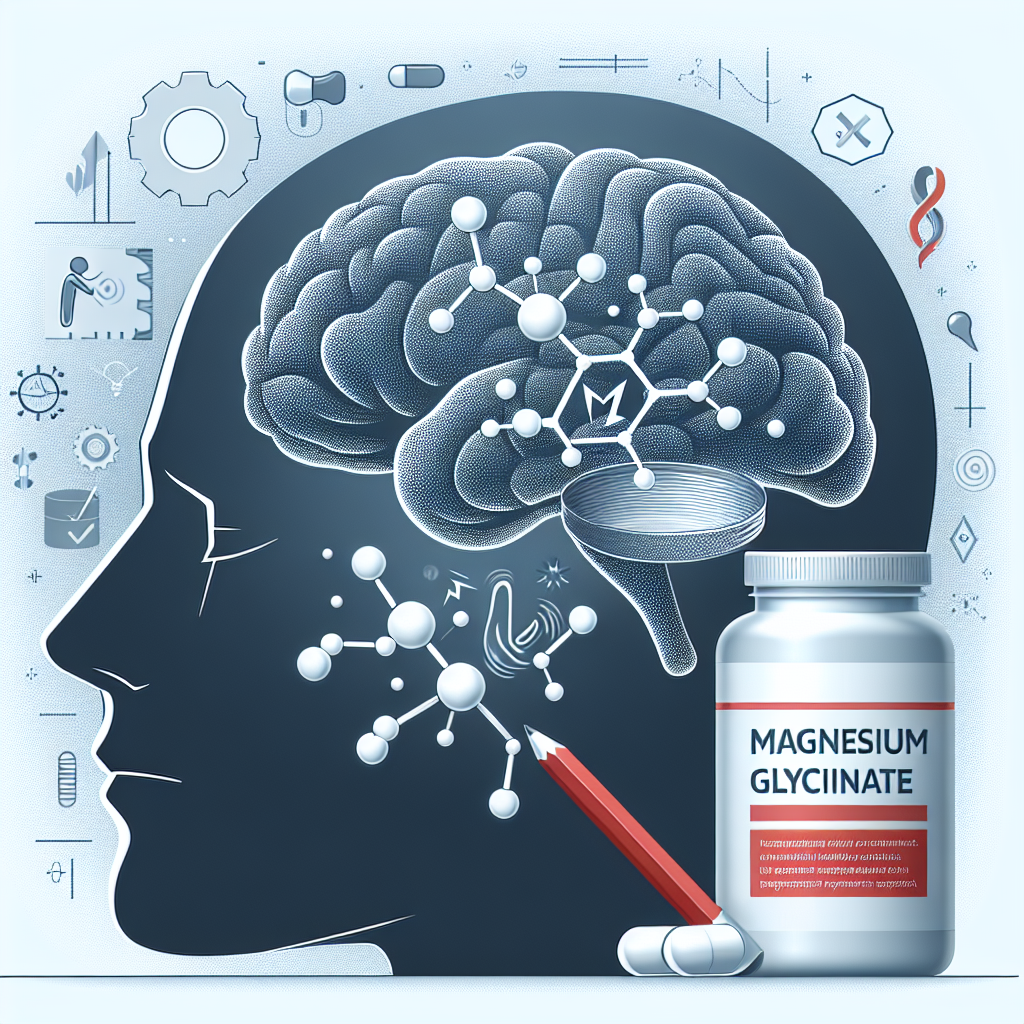
Magnesium Glycinate for Migraine Relief: What Research Shows
Share
Magnesium Glycinate for Migraine Relief: What Research Shows
Migraines can be incredibly debilitating, disrupting daily life with severe headaches, nausea, sensitivity to light, and more. While prescription medications provide relief for some, many individuals are turning toward natural solutions to help with migraine prevention and management. Among the most promising supplements are those containing magnesium – particularly magnesium glycinate. This article delves into the latest research on magnesium and migraines, highlighting how magnesium glycinate can be an effective part of migraine prevention supplement regimens.
Understanding Migraines and Their Triggers
Migraines are more than just headaches—they are a complex neurological disorder that affects millions worldwide. While the exact cause of migraines remains unclear, several factors are known to trigger these attacks, including hormonal changes, stress, certain foods, and deficiencies in key nutrients such as magnesium.
Studies have observed that people who suffer from migraines often have lower levels of magnesium in their bodies, especially during attacks. As a result, magnesium supplementation has been widely researched for both prevention and acute relief of migraines.
The Role of Magnesium in the Body
Magnesium is a vital mineral that supports over 300 biochemical processes in the body. Among its many functions, it helps regulate nerve and muscle function, blood sugar levels, and blood pressure. Additionally, magnesium contributes to the synthesis of neurotransmitters, which are crucial for healthy brain function and pain regulation. This connection makes it especially important for individuals prone to migraines.
Recent studies support the use of magnesium as one of the leading migraine prevention supplements. The American Migraine Foundation even recommends magnesium supplementation, particularly for those who experience frequent migraines with aura or menstrual migraines.
Magnesium and Migraines: What the Research Says
There is mounting clinical evidence supporting the use of magnesium for migraine relief:
- A 2012 review published in the journal Headache found that magnesium deficiency is more common in migraine sufferers than in the general population. Supplementing with magnesium was shown to reduce both the frequency and severity of migraine attacks in a significant portion of participants.
- A randomized controlled trial conducted in 2015 examined magnesium’s effect on migraines in children and adolescents. Those who received magnesium supplements experienced fewer migraine days compared to the placebo group.
- Other studies suggest that magnesium supplementation can be particularly effective in individuals whose migraines are related to PMS or hormonal fluctuations.
These findings make magnesium a well-supported, natural choice for those seeking migraine prevention supplements.
Why Choose Magnesium Glycinate for Migraines?
Not all magnesium supplements are created equal. Magnesium glycinate stands out as one of the most bioavailable and gentle forms of magnesium. This means it is highly effective at raising blood magnesium levels without the gastrointestinal side effects (such as diarrhea) associated with other forms, like magnesium oxide or citrate.
Magnesium glycinate is a chelated form, bonded with glycine – an amino acid known for its calming effect on the brain. This unique combination makes magnesium glycinate particularly well-suited for individuals who experience migraines triggered by stress or poor sleep.
How Magnesium Glycinate Works for Migraine Relief
The mechanism by which magnesium glycinate helps prevent migraines involves several biological pathways:
- Reducing Neurotransmitter Release: Magnesium modulates neurotransmitters such as serotonin, which is involved in pain regulation and has been linked to migraine attacks.
- Stabilizing Nerve Cells: By regulating the flow of calcium in and out of nerve cells, magnesium helps prevent excessive nerve excitation—one of the root causes of migraine aura and pain.
- Decreasing Cortical Spreading Depression (CSD): CSD is a wave of electrical activity in the brain believed to precede migraines. Magnesium can suppress this phenomenon, reducing the likelihood of attack onset.
Because magnesium glycinate is well absorbed and calming, it can reduce both the frequency and severity of migraines, as well as improve sleep quality and stress resilience—factors that commonly contribute to migraines in many individuals.
Incorporating Magnesium Glycinate into Your Migraine Prevention Routine
If you are considering magnesium glycinate for migraine prevention, it is important to choose a high-quality, easily absorbed supplement. Dosages often used in studies range from 200 mg to 400 mg daily, though it is best to consult your healthcare provider before starting any new supplement, especially if you are using other medications or have underlying health issues.
For optimal results, take magnesium glycinate consistently with a meal to enhance absorption and minimize the risk of any stomach upset. Benefits often become noticeable after a few weeks, so patience and regular use are key.
Recommended Product: Magnesium Glycinate Capsules
If you are searching for an effective magnesium glycinate migraine supplement, consider trying Magnesium Glycinate Capsules. Each capsule delivers a clinical dose of gentle magnesium bisglycinate, designed for optimal absorption without the digestive discomfort that accompanies many other forms. In addition to supporting migraine relief, these capsules are ideal for promoting restful sleep, calming the nervous system, and supporting muscle health. They are a versatile addition to any wellness or migraine prevention regimen.
For those who have struggled with magnesium and migraines, shifting to a chelated form like magnesium glycinate can make all the difference in effectiveness and tolerability.
Conclusion: Is Magnesium Glycinate Right for Your Migraine Prevention?
The evidence is clear: magnesium is one of the most researched and validated natural treatments for migraine prevention. Magnesium glycinate, due to its superior absorption and calming properties, offers unique benefits for migraine sufferers who want to reduce attack frequency, manage triggers, and support overall nervous system health. With products like Magnesium Glycinate Capsules, adding this powerful supplement to your daily routine has never been easier or more effective.
If you struggle with migraines and wish to take a research-backed, natural approach to prevention, magnesium glycinate may provide the relief and resilience you’ve been seeking.
Meta description: Discover the latest research on magnesium glycinate for migraines and how this supplement may support migraine prevention and overall wellness.
